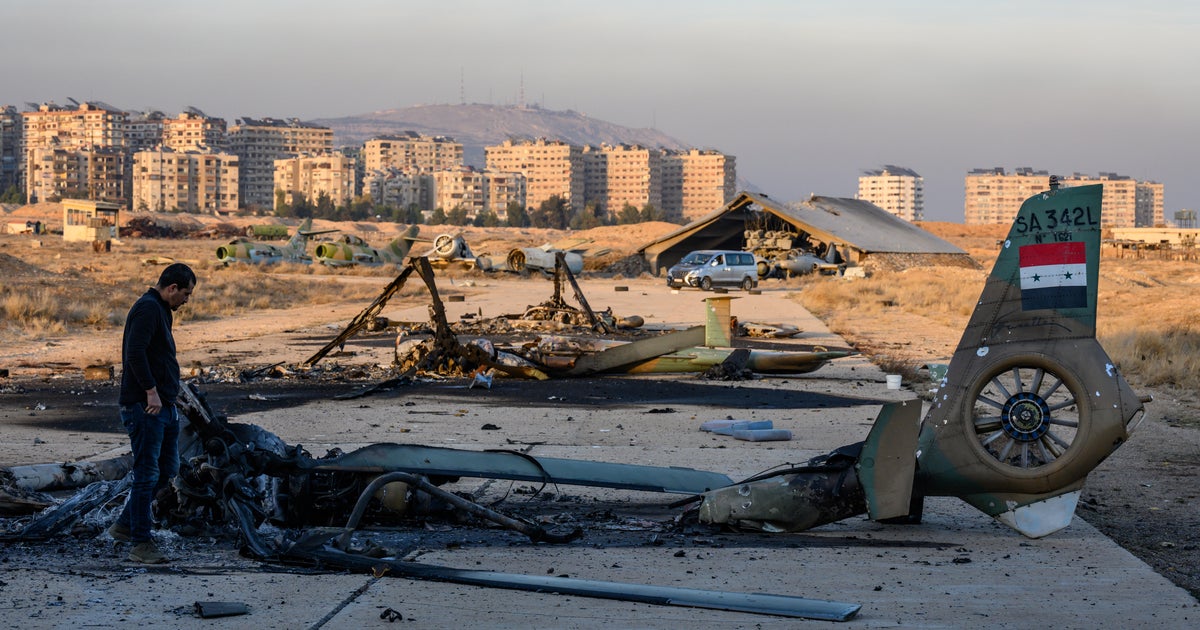Saudi Arabia not seeking death penalty for female activist Israa al-Ghomgham
London — In an apparent shift, Saudi Arabia is not seeking the death penalty against Israa al-Ghomgham, who rights groups previously said was the first woman in the country to possibly face execution for non-violent activism.
A representative at the Saudi Arabian embassy in London confirmed to CBS News that prosecutors are not seeking the death penalty — though the representative also said they never had been. CBS News reported on the death penalty charges last year, citing human rights organizations and court documents.
"From the beginning, the Saudi prosecutor has not sought the death sentence for Israa al-Ghomgham," the representative said Friday. "Rather, he has demanded a sentence of imprisonment, fines, and the confiscation of anything found to have been used in preparing the alleged crime."
Human rights activists said Friday that Saudi prosecutors had dropped the death penalty in response to increased international scrutiny following the killing of journalist Jamal Kashoggi.
Al-Ghomgham is still in jail and has been in detention in Saudi Arabia since 2015, when she was arrested for peaceful activism related to fighting discrimination against the kingdom's Shiite Muslim minority. According to court documents obtained by CBS News, she was facing charges including:
- Participating in marches meant to "incite strife;"
- "Providing moral support to rioters" by attending a protester's funeral;
- Using a false identity to create a Facebook profile;
- Traveling to Iran to "receive theoretical lessons on how to stir strife and disturbance in Saudi Arabia."
She is being tried before the country's secretive Specialized Criminal Court, established to hear cases against people accused of terrorism. Increasingly, it has been used to try protesters and human rights advocates.
Al-Ghomgham was one of six Saudi human rights defenders standing trial, five of whom had been facing possible death sentences.
"The first, second, third, fourth, and fifth defendants are to be sentenced to death," a court document from August 2018 reads. The document specifies that Al-Ghomgham is referred to as the fourth defendant.
The others, including her husband, are all still facing execution, Ali Adubisi, director of the European Saudi Organization for Human Rights, told CBS News.
Adubisi said the Saudi prosecution is no longer pursuing the death penalty in Al-Ghomgham's case because of international pressure in a climate of increased scrutiny.
"The evidence for that," he said, is that "they change(d what they were seeking) for Israa and they didn't change (it) for her husband. Most of the (charges) against Israa (are) similar to those against her husband… They are only act(ing) according to what international pressure (is) demanding."
Saudi Crown Prince Mohammad bin Salman has presented himself internationally as a modernizer, shepherding a number of high-profile reforms in the kingdom including giving women the right to drive. But MBS, as the crown prince is commonly known, has also been accused of cracking down on dissent. Many of the women activists who campaigned for greater rights, including the right to drive, have been jailed under his leadership.
After the killing of Washington Post journalist Jamal Khashoggi, and as the first woman to face possible execution for peaceful activism, al-Ghomgham's case made international headlines.
"Its extremely unlikely this serves as a reflection of changing state policy towards users of social media for alleged 'anti government' activities and alleged attendees of rallies," international human rights lawyer Oliver Windridge, who examined al-Ghomgham's case, told CBS News.
"Israa, alongside her 5 co-defendents, remain(s) in a trial that, in my opinion, contravenes international human rights law," he said.



